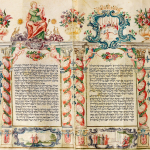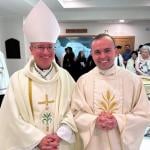Czestochowa, Poland, Jul 28, 2016 / 04:44 am (CNA/EWTN News).- Those who embrace their own littleness become the “spokespersons” of God, Pope Francis said during Mass at the shrine of Our Lady of Czestochowa, celebrating the 1050 anniversary of Poland becoming a Christian nation. It was the first major event of the Pope's trip to the country for the 31st World Youth Day. “To be attracted by power, by grandeur, by appearances, is tragically human,” the pontiff said in his homily. “But to give oneself to others, eliminating distances, dwelling in littleness and living the reality of one’s everyday life: this is exquisitely divine.” “The little ones speak (God's) own language, that of the humble love that brings freedom,” he said. “So he calls the simple and receptive to be his spokespersons; he entrusts to them the revelation of his name and the secrets of his heart.” According to official estimates, some 500,000 people attended the July 28 Mass with Pope Francis outside the Jasna Góra monastery, where the famous image of Our Lady of Czestochowa is housed. The event at Poland's leading Marian marked the first public Mass during Pope's July 27-31 trip to the nation for WYD, which is taking place in Krakow. The Mass was a celebration of the “baptism” of Poland, which became a Christian nation in 966 upon the baptism of its first historic ruler, Mieszko I. Francis centered his homily for the Mass on the readings, starting with Paul's letter to the Galatians. This reading speaks of Jesus coming at the “fullness of time” which, the Pope said, was “a gift of grace: God filled our time out of the abundance of his mercy. Out of sheer love he inaugurated the fullness of time.” The pontiff noted the particular significance of God entering into history by being “born of a woman.” “There was no triumphal entrance or striking epiphany of the Almighty. He did not reveal himself as a brilliantly rising sun, but entered the world in the simplest of ways, as a child from his mother,” he said. Citing Saint Luke's Gospel, the Pope said: “Thus, contrary to our expectations and perhaps even our desires, the kingdom of God, now as then, 'does not come in a way that attracts attention,' but rather in littleness, in humility.” Pope Francis turned his reflection to the day's Gospel which recounts Jesus' first miracle -- turning water into wine, at the request of his mother, during the wedding feast at Cana. “Today’s Gospel takes up this divine thread delicately passing through history,” he said. “Time shortens, God always shows himself in littleness.” This miracle was not an an “amazing deed done before the crowd” or a response to a “political question,” the pontiff observed. Rather, it was a “simple miracle” in a small village, one which “brings joy to the wedding of a young and completely anonymous family.” Despite its “littleness,” the miracle is nonetheless “a great sign, for it reveals to us the spousal face of God, a God who sits at table with us, who dreams and holds communion with us,” the Pope said. “It tells us that the Lord does not keep his distance, but is near and real. He is in our midst and he takes care of us, without making decisions in our place and without troubling himself with issues of power.” The desire for power is a human temptation, the pontiff said. Unlike us, Jesus “prefers to let himself be contained in little things.” “To be attracted by power, by grandeur, by appearances, is tragically human,” he said. “But to give oneself to others, eliminating distances, dwelling in littleness and living the reality of one’s everyday life: this is exquisitely divine.” Pope Francis reflected on three ways in which God saves humanity. This is achieved by Jesus' littleness, by his closeness to his people, and by his concrete actions. Reflecting on Jesus' “littleness,” the Pope noted his special love for “the little ones, to whom the kingdom of God is revealed.” “The little ones speak his own language, that of the humble love that brings freedom. So he calls the simple and receptive to be his spokespersons; he entrusts to them the revelation of his name and the secrets of his heart,” he said. He cited examples of this littleness, such as the martyrs who “defenseless power of the Gospel shine forth,” as well as ordinary people who witnessed “the Lord’s love amid great trials.” The Pope also remembered the Polish saints, St. John Paul II and St. Faustina, describing them as “meek and powerful heralds of mercy.” He also noted the significance of this significant anniversary of Poland's baptism falling during the Jubilee Year of Mercy. Pope Francis then reflected on God's nearness to his people, and his desire “to come down to our everyday affairs, to walk with us.” Reflecting on the 1050 years of Christianity in Poland, he said “we do well before all else to thank God for having walked with your people, having taken you by the hand and accompanied you in so many situations.” “That is what we too, in the Church, are constantly called to do: to listen, to get involved and be neighbours, sharing in people’s joys and struggles, so that the Gospel can spread every more consistently and fruitfully: radiating goodness through the transparency of our lives.” Finally, Pope Francis spoke of God in his reality, as manifested in the Word becoming flesh, “born of a mother.” “The eternal is communicated by spending time with people and in concrete situations,” the Pope explained. Addressing the people of Poland, the pontiff said: “Your own history, shaped by the Gospel, the Cross and fidelity to the Church, has seen the contagious power of a genuine faith, passed down from family to family, from fathers to sons and above all from mothers and grandmothers, whom we need so much to thank.” Pope Francis indicated to the image of Our Lady of Czestochowa, and reflected on Mary as a sign of “the fullness of time.” “In her, we find complete conformity to the Lord,” he said, adding that there is a “Marian thread” woven into history with the “divine thread.” “If there is any human glory, any merit of our own in the fullness of time, it is she,” he said. Mary is that space, preserved free from sin, where God chose to mirror himself.” “She is the stairway God took to descend and draw near to us. She is the clearest sign of the fullness of time.” Reflecting on Mary's “littleness,” the Pope noted how God “was so pleased with her that he let his flesh be woven from hers, so that the Virgin became the Mother of God.” The pontiff addressed the pilgrims who travel to the Shrine of Czestochowa, the “spiritual capital” of Poland. “May she continue to point the way,” and help you to weave in your own lives the humble and simple thread of the Gospel.” At the Jasna Góra shrine, like at Cana, Pope Francis said “Mary offers us her nearness, and helps us to discover what we need to live life to the full.” Acting with a “mother's love,” Mary teaches us “to avoid hasty decisions and grumbling in our communities,” he said. “As the Mother of a family, she wants to keep us together. Through unity, the journey of your people has surmounted any number of harsh experiences.” Addressing the crowds, the pontiff prayed that Mary may “obtain for you the desire to leave behind all past wrongs and wounds, and to build fellowship with all, without ever yielding to the temptation to withdraw or to domineer.” Pope Francis also spoke of the “great realism” which Mary demonstrated at the wedding in Cana, taking to heart the people's problems, and handling them “discreetly, efficiently and decisively.” He encouraged the faithful to ask for the grace to be able to imitate Mary's “sensitivity” and “creativity in serving others,” and to know the beauty of serving others, “without favourites or distinctions.” “The transition from before to after Christ means little if it remains a date in the annals of history,” Francis concluded. “May each one of us be able to make an interior passage, a Passover of the heart, towards the divine 'style' incarnated by Mary,” he said. “May we do everything in littleness, and accompany others at close hand, with a simple and open heart.” Read more
















